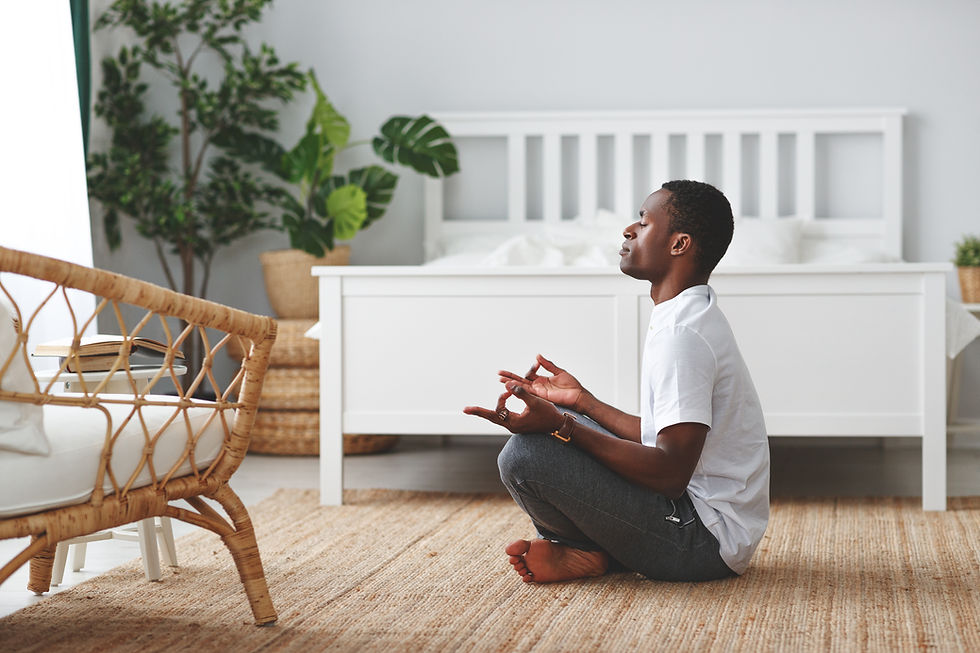It's final exam season. Holidays are weeks away. It almost feels like everything comes together at once. Stress is a silent, yet troublesome concern for us. Some of us may feel the stress right away while others don't notice it yet. The key word is yet. You'd be surprised how stress can cause problems. Scientists consider it worse than smoking.
Are you becoming frustrated and irritable due to stress? The chaos in your life can be brought back to order with the use of stress relievers. Stress relievers don't require a lot of effort or thought. Try one of these suggestions if your tension is out of control and you need immediate relief.
Let's begin!
Take a Step Back

The first tip is to take a step back. It's simple to enter an instant state of stress when you receive a difficult email, your neighbor calls to inform you that your dog escaped, your children's school asks a meeting, or any number of other stressful situations.
Instead of allowing your tension to get out of control, take a moment. This is your chance to identify the type of "stress" or weather we are experiencing and put on the appropriate "outfit," so to speak.
Being cool under pressure doesn't imply that you are oblivious to what is happening. Simply said, it means you're fighting the need to respond. Taking a minute to react in a way that will fix the problem rather than make it worse.
Disconnect from Everything

Our minds need time to recharge. The second tip we can recommend to you is to disconnect from everything when you feel overwhelmed.
Admittedly, this is the hardest tip on the list. The digital age makes it difficult for us to disconnect. Even when we think we are, you're probably scrolling through social media to distract yourself. You frequently need to give oneself a little breathing room in order to arrive at this course of action. Take a moment to appreciate the moment before tackling the problem head-on.
Exercise is quite beneficial for this. They naturally increase our joyful hormones and also raise our self-confidence. Try taking a fast walk, playing with your dog, performing some quick yoga or stretching exercises, turning up your joyful dancing music, or taking a shower.
Identify Your Stress Triggers

What stresses you out? For each person, the stress triggers vary. You may experience stress when it hits you like a hurricane. Knowing what is solid ground and which way is up can be challenging because everything appears to be moving simultaneously. Just keep in mind that this is only what your anxious mind is perceiving.
Spend some time outlining the things that are worrying you. Divide it up into concrete, doable tasks. Give those a sensible time limit after that. That could entail talking to your boss over the phone, organizing a family gathering to discuss setting up a regular home routine, or reducing your spending until your financial situation becomes better. You'll see there are solutions and that the issue can be fixed once you see it in writing.
Mindfulness and Meditation Help

You can silence the constant stream of disorganized ideas that may be stressing you out by focusing your attention during meditation. Both your emotional well-being and your general health can benefit from the sense of calm, peace, and balance that meditation can help you achieve.
Whether you're taking a walk, taking the bus to work, or waiting at the doctor's office, you can practice guided meditation, guided imagery, visualization, and other types of meditation anywhere, at any time. Anywhere is a good place to try deep breathing.
Exercise

Exercise can increase your levels of feel-good endorphins and other natural neurotransmitters that improve your mood. Exercise can also help you refocus your attention on how your body is moving, which can lift your spirits and help you forget about the day's irritations. Take into account activities that get you moving, such as walking, running, gardening, housecleaning, biking, swimming, weightlifting, or anything else.
Final Thoughts
The most important part about these tips is to remind you to take a break. Stress is a serious problem and mental health care is a consistent battle. While you don't feel the affects right now, stress can cause problems later down the line such as sleeping problems or illness.
You may have problems falling asleep due to stress. Your ability to sleep can deteriorate if you have too much to accomplish and think about. However, while you sleep, your body and brain are rejuvenated.
Additionally, the caliber and quantity of sleep you obtain might have an impact on your mood, level of energy, attention, and general functioning. If you struggle to fall asleep, make sure you follow a regular schedule, listen to peaceful music before bed, and put your clocks away.
Nevertheless, if you are reading this article, don't forget to take care of yourself. Your health is priority number one. Stress passes if you take care of it.


Reducing stress can sometimes feel overwhelming, but taking a step back and engaging in mindful activities can make a big difference. One of my favorite ways to unwind is by taking a cruise on the river. There’s something about being on the water that brings an instant sense of calm. It’s a chance to slow down, breathe, and truly appreciate the moment. If you're looking to reset, I highly recommend finding a peaceful retreat where you can relax and enjoy the quiet beauty around you. Sometimes, a change in scenery is all you need to refresh your mind and body.
Great tips for managing stress! Incorporating techniques like mindfulness and exercise is essential, but if you're looking for a more immersive experience, consider attending a meditation retreat north carolina. This retreat can provide a peaceful environment to deeply focus on stress reduction and self-care. Combining these practices with regular sessions at a retreat can significantly enhance your overall well-being. Thanks for sharing these valuable insights!